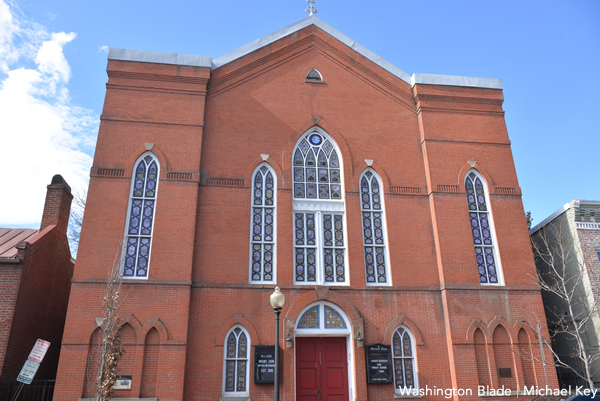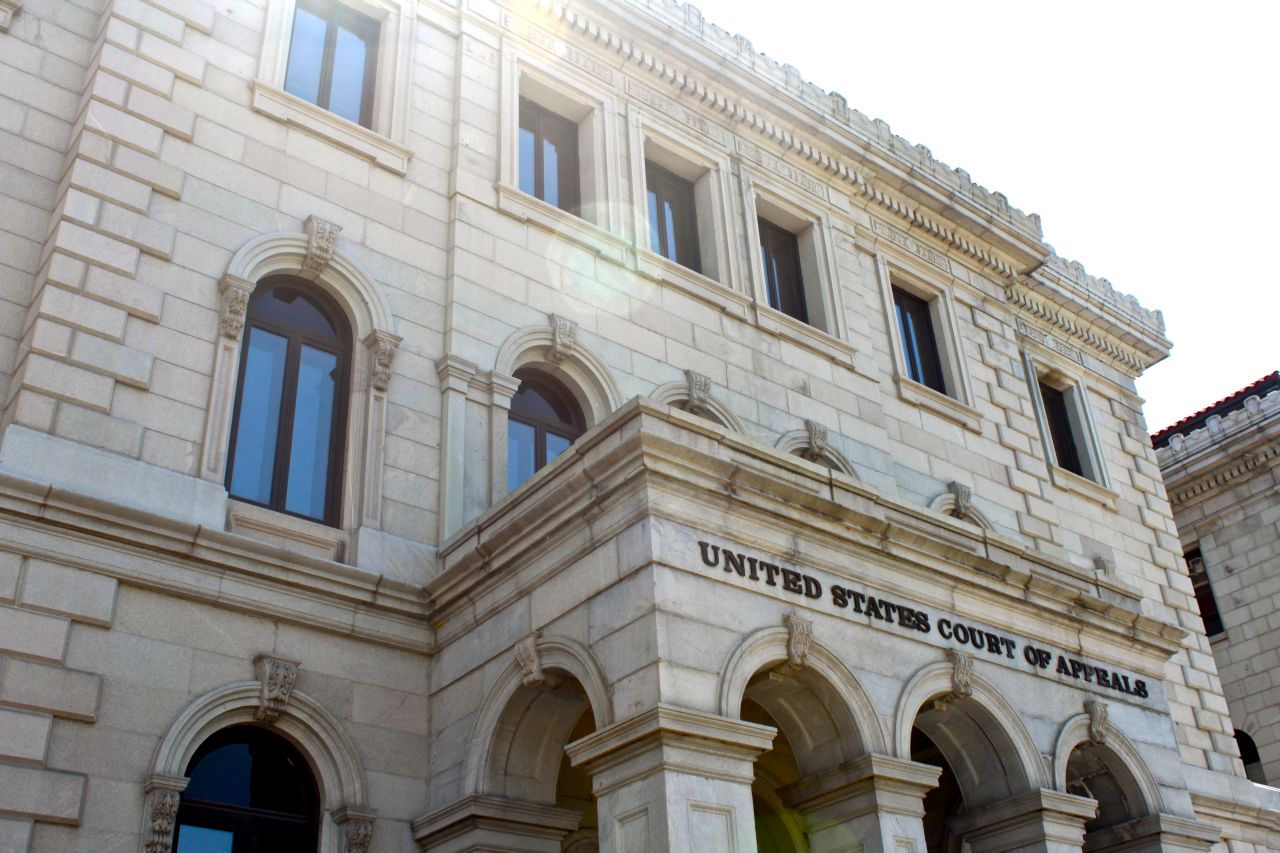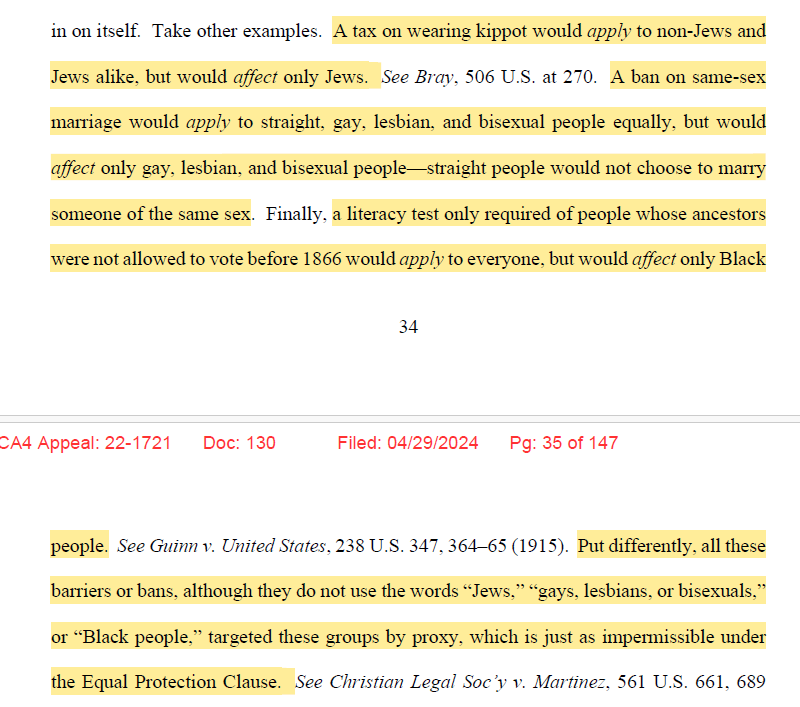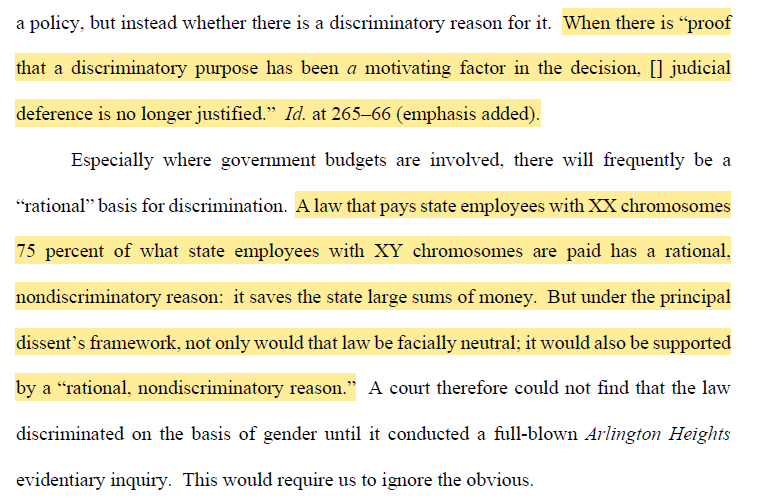National
Gay Facebook co-founder criticized for failing to give to N.C. fight
Hughes discouraged by marriage polls in his home state
The gay co-founder of Facebook hasn’t contributed financially to the campaign opposing a measure that would ban same-sex marriage in North Carolina — even though the battle to thwart the amendment is taking place in his home state.
Chris Hughes, who co-founded Facebook along with his Harvard roommate Mark Zuckerberg in 2004 and served as the site’s spokesperson, has made no donations to the campaign against Amendment One since the campaign began last year through 5:30 p.m. on Monday, according to data from the Campaign to Protect All NC Families. According to a Forbes Magazine article published in March, Hughes’ stake in Facebook is worth at least $600 million.
In a statement provided Monday to the Washington Blade, Hughes said he opposes the measure, which will come before voters May 8, because of the negative impact it would have on LGBT families in North Carolina.
“As a native North Carolinian myself, I have opposed this amendment from the start,” Hughes said. “It would write discrimination into the state constitution and hurt gay and lesbian North Carolinians who work hard, contribute to society, and want to protect their families like everyone else.”
Hughes added that he and his fiancé Sean Eldridge, president of the small business investment fund Hudson River Ventures and a senior adviser at Freedom to Marry, have contributed “time and resources” to the fight against Amendment One.
“My fiancé Sean and I have contributed our time and resources to oppose this discriminatory amendment, and we hope that it is defeated next week,” Hughes said. “Along with Freedom to Marry and Equality NC, we helped fund last year’s campaign to keep the amendment off of the ballot and are supportive of the ongoing efforts in the state to win on May 8. Winning the freedom to marry nationwide is a top priority for Sean and myself, and from New York to North Carolina, we’re proud of our work to help make that a reality.”
Same-sex marriage is already barred by statute in North Carolina. Opponents say the measure would also prohibit civil unions and interfere with domestic partner benefits offered by municipalities as well as threaten contractual arrangements between same-sex partners.
Given that Hughes made no contribution to the Campaign to Protect All NC Families, his reference to helping the campaign to keep Amendment One off the ballot could be a reference to contributions made to an effort to stop the state legislature from passing the measure and sending it to voters, which state lawmakers did on Sept. 13.
Hughes did engage in efforts to stop the marriage amendment for coming to the ballot. In a Sept. 9 letter, Hughes wrote an open letter to the General Assembly saying the measure would be “bad for business, bad for the perception of my home state on the national stage and a far cry from job-creating legislation that North Carolina lawmakers should be focused on.” Hughes also pledged to donate $10 for each person who likes Equality North Carolina’s page on Facebook up to a total donation of $10,000.
Born in 1983 in Hickory, N.C., Hughes took on other initiatives after co-founding Facebook. In 2008, he was coordinator of online organizing for Barack Obama’s presidential campaign on My.BarackObama.com, the campaign’s social networking site. Other projects include joining on as entrepreneur in residence at General Catalyst Partners, a Cambridge, Mass.-based venture capital firm, and launching Jumo, a social networking service and website aimed at allowing potential donors to evaluate charities.
In March 2012, Hughes bought a majority share of The New Republic magazine, becoming its owner, editor-in-chief and publisher. The terms of the deal weren’t disclosed.
Prior to issuing his statement, Hughes had a brief exchange about Amendment One with the Blade in D.C. at National Public Radio’s “Friday Night Spin” party on April 29. Hughes and Eldridge said they were discouraged from donating by polling data. Some early polls showed the anti-gay side with a double-digit lead in the state. The couple said they instead favored contributing to fights over state ballot measures with better prospects for the pro-gay side, such as in Washington State or Maine.
But recent polls show momentum turning against Amendment One. Data published last week by Public Policy Polling found only 54 percent of voters in the state plan to vote for it, while 40 percent are opposed to the measure. That’s the lowest level of support for the measure that PPP has found in polling since last October.
Adam Bink, director of online programs for the Courage Campaign and an organizer for grassroots efforts against Amendment One, criticized Hughes for failing to donate money to efforts opposing the amendment.
“The question is, will Chris give or won’t he,” Bink said. “It’s disappointing that he’s given up when, with polls the closest in history and an outpouring of support today online from people who work hard to make ends meet, he couldn’t be bothered to give.”
Jeremy Kennedy, campaign manager for the Coalition to Protect All NC Families, responded to Hughes’ lack of contributions by more broadly calling on major donors to give to the campaign.
“With only days until the election, I am overwhelmed by the over 9,500 donors who have contributed over $2 million,” Kennedy said. “We are very close to having a fully funded campaign that can close the gap, and pull an upset by defeating Amendment One. I am hopeful that the major donors across the country who have yet to give will understand that their resources can make a difference and will help us get to the finish line.”
Hughes isn’t the only noteworthy gay entrepreneur who hasn’t donated money to the campaign against Amendment One. Mitchell Gold, co-founder of the furniture manufacturer Mitchell Gold + Bob Williams, also hasn’t made a contribution; his company is based in Taylorsville, N.C. Gold declined to comment.
Major donations to the campaign against Amendment One include $200,000 from Jon Stryker, president and founder of Arcus Foundation. Dan Savage, a Seattle-based gay political pundit and sex advice columnist, gave $1,000.
According to the campaign, just under 10,000 donors in total have given so far. The average gift is less than $100 and donations have ranged from $5 to $250,000.
NOTE: This post has been updated.
National
United Methodist Church removes 40-year ban on gay clergy
Delegates also voted for other LGBTQ-inclusive measures

The United Methodist Church on Wednesday removed a ban on gay clergy that was in place for more than 40 years, voting to also allow LGBTQ weddings and end prohibitions on the use of United Methodist funds to “promote acceptance of homosexuality.”
Overturning the policy forbidding the church from ordaining “self-avowed practicing homosexuals” effectively formalized a practice that had caused an estimated quarter of U.S. congregations to leave the church.
The New York Times notes additional votes “affirming L.G.B.T.Q. inclusion in the church are expected before the meeting adjourns on Friday.” Wednesday’s measures were passed overwhelmingly and without debate. Delegates met in Charlotte, N.C.
According to the church’s General Council on Finance and Administration, there were 5,424,175 members in the U.S. in 2022 with an estimated global membership approaching 10 million.
The Times notes that other matters of business last week included a “regionalization” plan, which gave autonomy to different regions such that they can establish their own rules on matters including issues of sexuality — about which international factions are likelier to have more conservative views.
Federal Government
Republican state AGs challenge Biden administration’s revised Title IX policies
New rules protect LGBTQ students from discrimination

Four Republicans state attorneys general have sued the Biden-Harris administration over the U.S. Department of Education’s new Title IX policies that were finalized April 19 and carry anti-discrimination protections for LGBTQ students in public schools.
The lawsuit filed on Tuesday, which is led by the attorneys general of Kentucky and Tennessee, follows a pair of legal challenges from nine Republican states on Monday — all contesting the administration’s interpretation that sex-based discrimination under the statute also covers that which is based on the victim’s sexual orientation or gender identity.
The administration also rolled back Trump-era rules governing how schools must respond to allegations of sexual harassment and sexual assault, which were widely perceived as biased in favor of the interests of those who are accused.
“The U.S. Department of Education has no authority to let boys into girls’ locker rooms,” Tennessee Attorney General Jonathan Skrmetti said in a statement. “In the decades since its adoption, Title IX has been universally understood to protect the privacy and safety of women in private spaces like locker rooms and bathrooms.”
“Florida is suing the Biden administration over its unlawful Title IX changes,” Florida Gov. Ron DeSantis wrote on social media. “Biden is abusing his constitutional authority to push an ideological agenda that harms women and girls and conflicts with the truth.”
After announcing the finalization of the department’s new rules, Education Secretary Miguel Cardona told reporters, “These regulations make it crystal clear that everyone can access schools that are safe, welcoming and that respect their rights.”
The new rule does not provide guidance on whether schools must allow transgender students to play on sports teams corresponding with their gender identity to comply with Title IX, a question that is addressed in a separate rule proposed by the agency in April.
LGBTQ and civil rights advocacy groups praised the changes. Lambda Legal issued a statement arguing the new rule “protects LGBTQ+ students from discrimination and other abuse,” adding that it “appropriately underscores that Title IX’s civil rights protections clearly cover LGBTQ+ students, as well as survivors and pregnant and parenting students across race and gender identity.”
Federal Government
4th Circuit rules gender identity is a protected characteristic
Ruling a response to N.C., W.Va. legal challenges

BY ERIN REED | The 4th U.S. Circuit Court of Appeals ruled Monday that transgender people are a protected class and that Medicaid bans on trans care are unconstitutional.
Furthermore, the court ruled that discriminating based on a diagnosis of gender dysphoria is discrimination based on gender identity and sex. The ruling is in response to lower court challenges against state laws and policies in North Carolina and West Virginia that prevent trans people on state plans or Medicaid from obtaining coverage for gender-affirming care; those lower courts found such exclusions unconstitutional.
In issuing the final ruling, the 4th Circuit declared that trans exclusions were “obviously discriminatory” and were “in violation of the equal protection clause” of the Constitution, upholding lower court rulings that barred the discriminatory exclusions.
The 4th Circuit ruling focused on two cases in states within its jurisdiction: North Carolina and West Virginia. In North Carolina, trans state employees who rely on the State Health Plan were unable to use it to obtain gender-affirming care for gender dysphoria diagnoses.
In West Virginia, a similar exclusion applied to those on the state’s Medicaid plan for surgeries related to a diagnosis of gender dysphoria. Both exclusions were overturned by lower courts, and both states appealed to the 4th Circuit.
Attorneys for the states had argued that the policies were not discriminatory because the exclusions for gender affirming care “apply to everyone, not just transgender people.” The majority of the court, however, struck down such a claim, pointing to several other cases where such arguments break down, such as same-sex marriage bans “applying to straight, gay, lesbian, and bisexual people equally,” even though straight people would be entirely unaffected by such bans.
Other cases cited included literacy tests, a tax on wearing kippot for Jewish people, and interracial marriage in Loving v. Virginia.
See this portion of the court analysis here:

Of particular note in the majority opinion was a section on Geduldig v. Aiello that seemed laser-targeted toward an eventual U.S. Supreme Court decision on discriminatory policies targeting trans people. Geduldig v. Aiello, a 1974 ruling, determined that pregnancy discrimination is not inherently sex discrimination because it does not “classify on sex,” but rather, on pregnancy status.
Using similar arguments, the states claimed that gender affirming care exclusions did not classify or discriminate based on trans status or sex, but rather, on a diagnosis of gender dysphoria and treatments to alleviate that dysphoria.
The majority was unconvinced, ruling, “gender dysphoria is so intimately related to transgender status as to be virtually indistinguishable from it. The excluded treatments aim at addressing incongruity between sex assigned at birth and gender identity, the very heart of transgender status.” In doing so, the majority cited several cases, many from after Geduldig was decided.
Notably, Geduldig was cited in both the 6th and 11th Circuit decisions upholding gender affirming care bans in a handful of states.
The court also pointed to the potentially ridiculous conclusions that strict readings of what counts as proxy discrimination could lead to, such as if legislators attempted to use “XX chromosomes” and “XY chromosomes” to get around sex discrimination policies:
Importantly, the court also rebutted recent arguments that Bostock applies only to “limited Title VII claims involving employers who fired” LGBTQ employees, and not to Title IX, which the Affordable Care Act’s anti-discrimination mandate references. The majority stated that this is not the case, and that there is “nothing in Bostock to suggest the holding was that narrow.”
Ultimately, the court ruled that the exclusions on trans care violate the Equal Protection Clause of the Constitution. The court also ruled that the West Virginia Medicaid Program violates the Medicaid Act and the anti-discrimination provisions of the Affordable Care Act.
Additionally, the court upheld the dismissal of anti-trans expert testimony for lacking relevant expertise. West Virginia and North Carolina must end trans care exclusions in line with earlier district court decisions.
The decision will likely have nationwide impacts on court cases in other districts. The case had become a major battleground for trans rights, with dozens of states filing amicus briefs in favor or against the protection of the equal process rights of trans people. Twenty-one Republican states filed an amicus brief in favor of denying trans people anti-discrimination protections in healthcare, and 17 Democratic states joined an amicus brief in support of the healthcare rights of trans individuals.
Many Republican states are defending anti-trans laws that discriminate against trans people by banning or limiting gender-affirming care. These laws could come under threat if the legal rationale used in this decision is adopted by other circuits. In the 4th Circuit’s jurisdiction, West Virginia and North Carolina already have gender-affirming care bans for trans youth in place, and South Carolina may consider a similar bill this week.
The decision could potentially be used as precedent to challenge all of those laws in the near future and to deter South Carolina’s bill from passing into law.
The decision is the latest in a web of legal battles concerning trans people. Earlier this month, the 4th Circuit also reversed a sports ban in West Virginia, ruling that Title IX protects trans student athletes. However, the Supreme Court recently narrowed a victory for trans healthcare from the 9th U.S. Circuit Court of Appeals and allowed Idaho to continue enforcing its ban on gender-affirming care for everyone except the two plaintiffs in the case.
Importantly, that decision was not about the constitutionality of gender-affirming care, but the limits of temporary injunctions in the early stages of a constitutional challenge to discriminatory state laws. It is likely that the Supreme Court will ultimately hear cases on this topic in the near future.
Celebrating the victory, Lambda Legal Counsel and Health Care Strategist Omar Gonzalez-Pagan said in a posted statement, “The court’s decision sends a clear message that gender-affirming care is critical medical care for transgender people and that denying it is harmful and unlawful … We hope this decision makes it clear to policy makers across the country that health care decisions belong to patients, their families, and their doctors, not to politicians.”
****************************************************************************

Erin Reed is a transgender woman (she/her pronouns) and researcher who tracks anti-LGBTQ+ legislation around the world and helps people become better advocates for their queer family, friends, colleagues, and community. Reed also is a social media consultant and public speaker.
******************************************************************************************
The preceding article was first published at Erin In The Morning and is republished with permission.



















